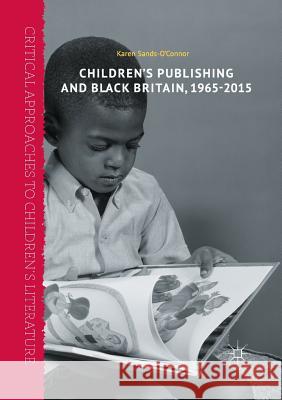Children's Publishing and Black Britain, 1965-2015 » książka
topmenu
Children's Publishing and Black Britain, 1965-2015
ISBN-13: 9781349954230 / Angielski / Miękka / 2018 / 197 str.
Kategorie:
Kategorie BISAC:
Wydawca:
Palgrave MacMillan
Seria wydawnicza:
Język:
Angielski
ISBN-13:
9781349954230
Rok wydania:
2018
Wydanie:
Softcover Repri
Ilość stron:
197
Waga:
0.25 kg
Wymiary:
21.01 x 14.81 x 1.12
Oprawa:
Miękka
Wolumenów:
01
Dodatkowe informacje:
Wydanie ilustrowane











